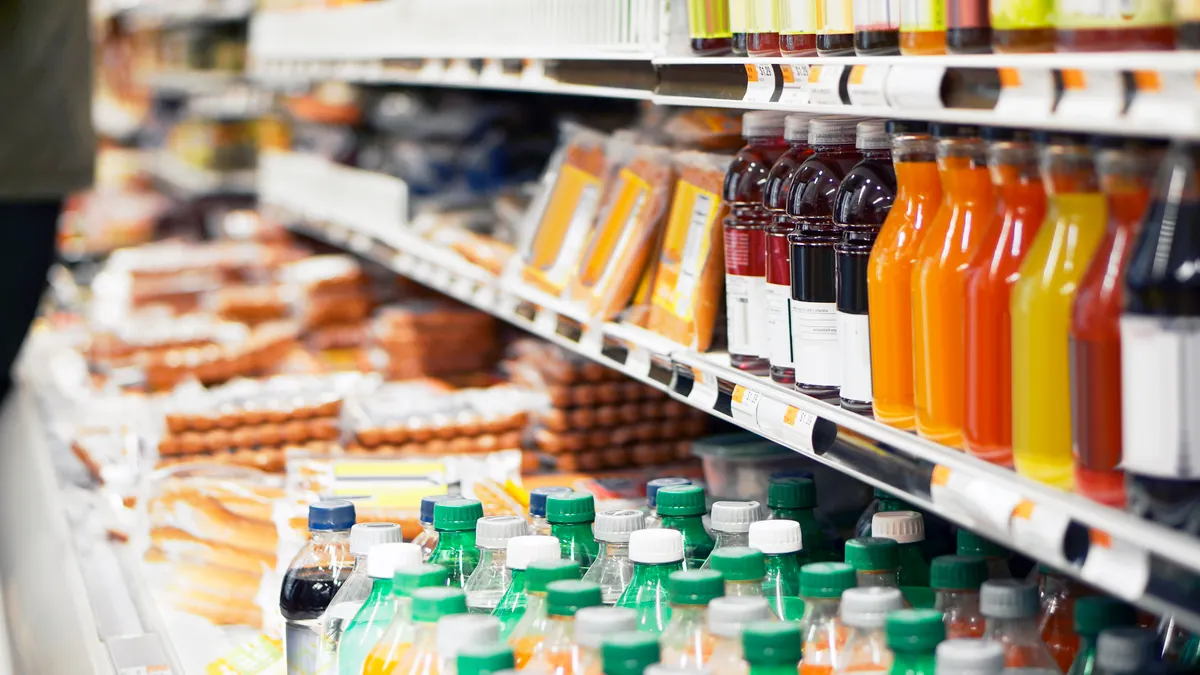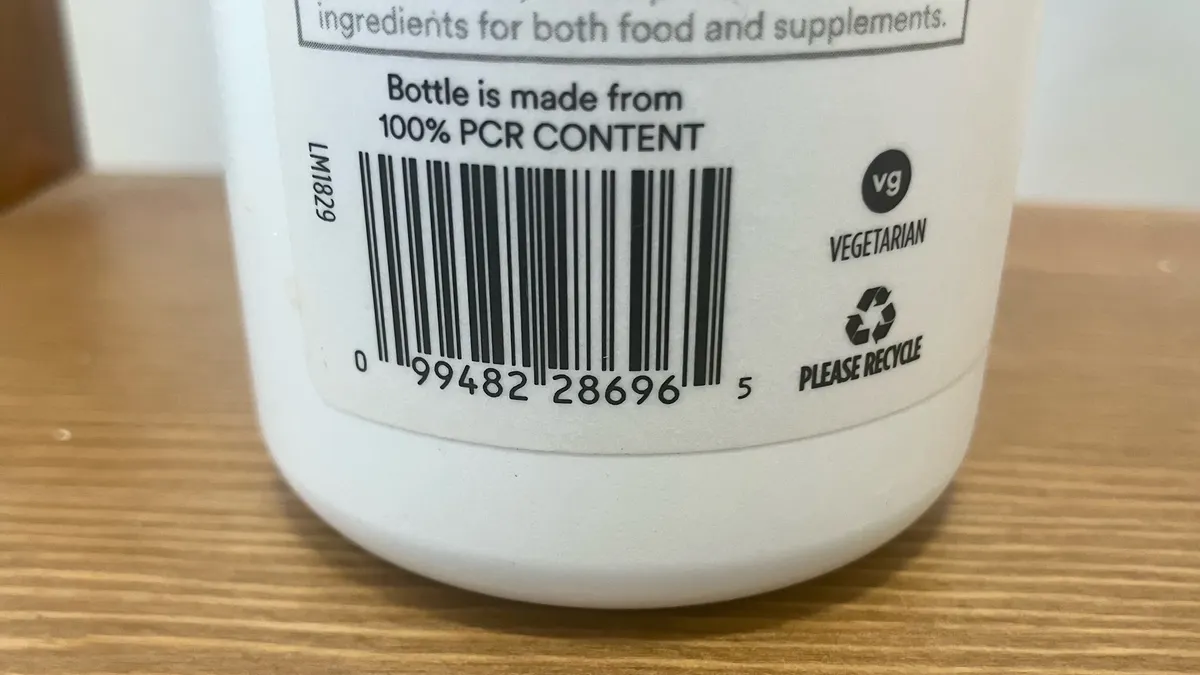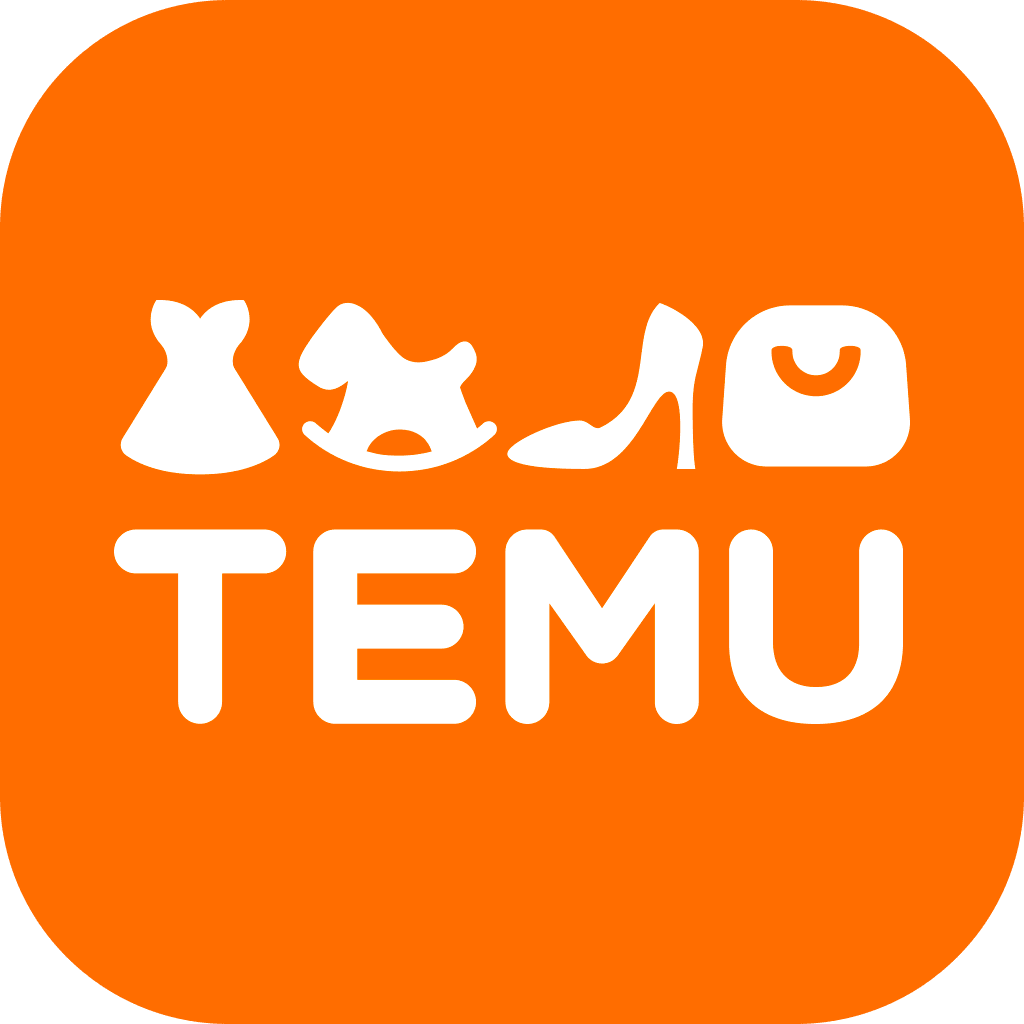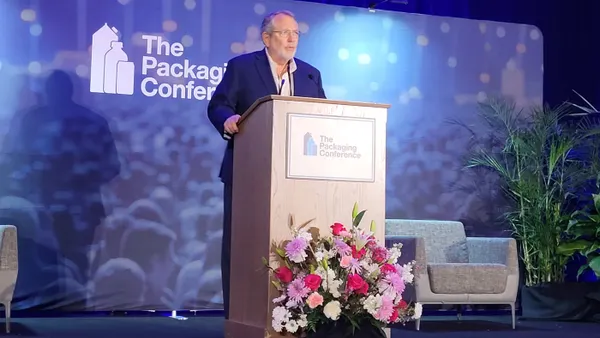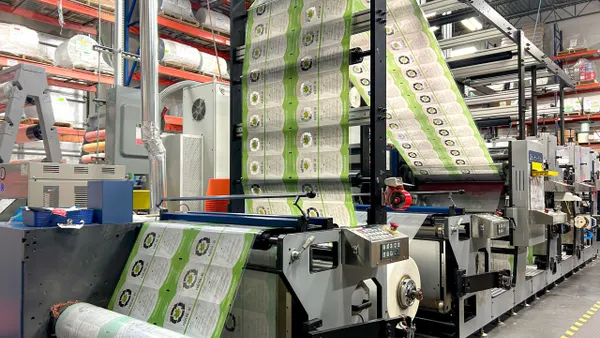ROSEMONT, ILLINOIS — Private label presence in retail markets is growing, and so too are opportunities for packaging companies who serve those customers, according to speakers on Monday at the Private Label Manufacturers Association's annual trade show.
Circana data shows store brands outpaced national brands both in unit and dollar sales in the United States through the first 11 months of 2025, said PLMA President Peggy Davies. Store brand unit sales grew 0.4% during that time while national brands declined 0.7%. And store brands rose 3.6% in dollar sales while national brands grew just 1.1%.
Store brand market share is 23.1% of unit sales and 21% of dollar sales, Davies said. PLMA projects that store brand product revenue will increase from last year's $272 billion to $280 billion in 2025 — which would be an all-time high.
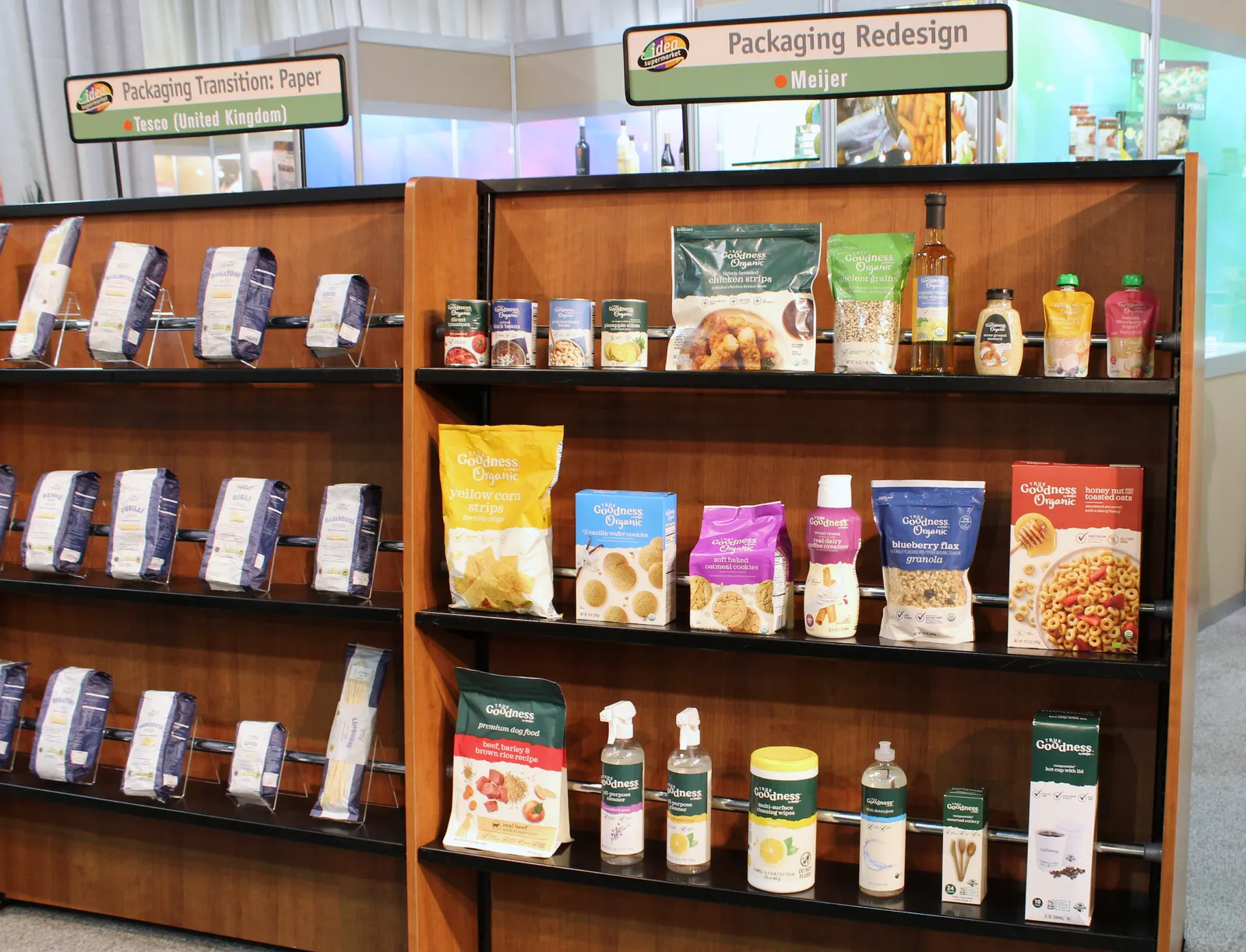
Shelf-ready packaging core to grocery
The effects of that growth are trickling through the supply chain and touching packaging manufacturers, which speakers said are integral to the private label ecosystem.
“Private brand is core to who we are. Shelf-ready packaging is core to who we are as well,” said Joel Rampoldt, CEO at Lidl US.
Lidl strives to be a low-cost grocer, and shelf-ready packaging is crucial to that business model. In part, it allows the grocer to maintain minimal staffing by enabling associates to pack out shelves efficiently.
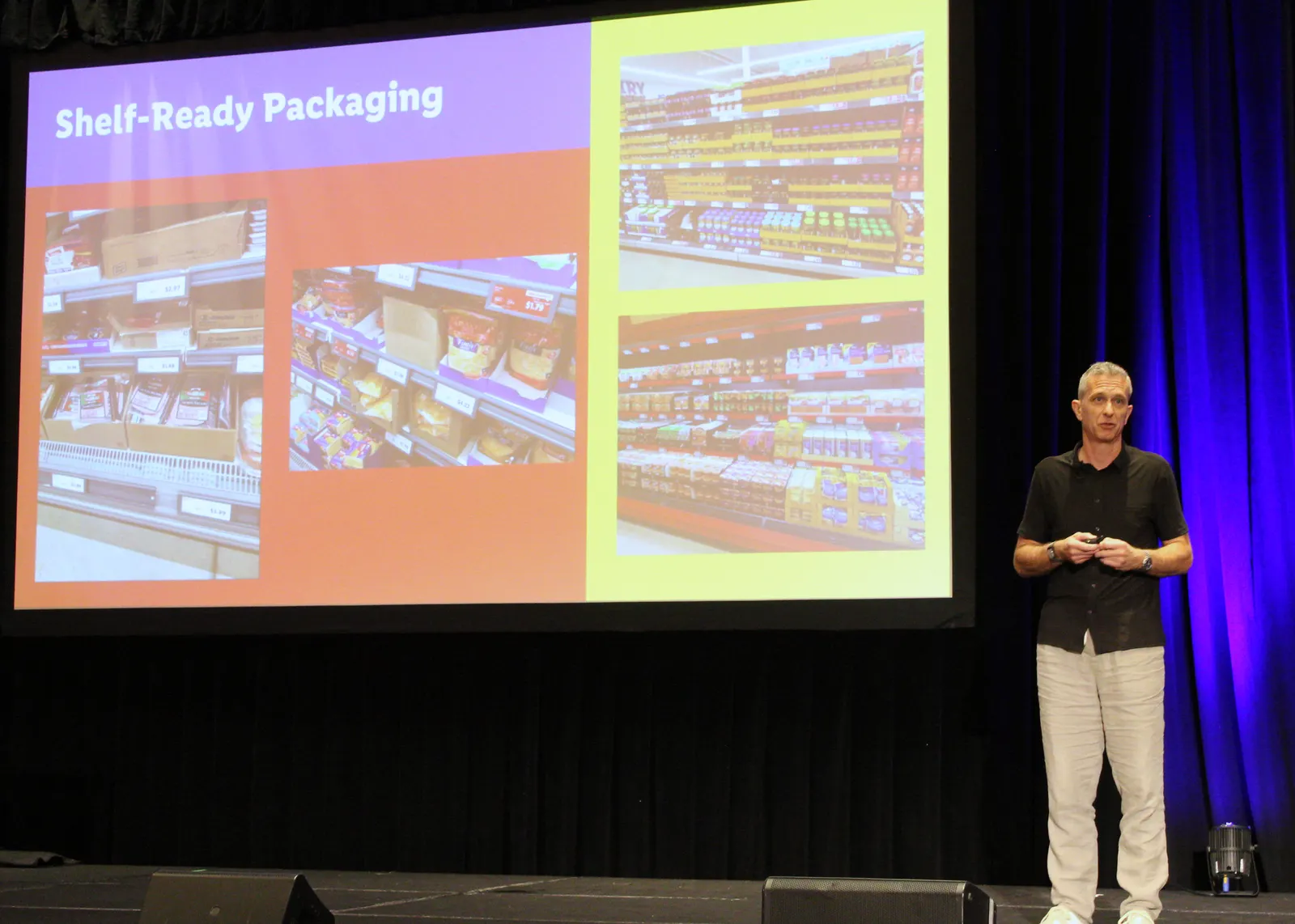
“Why stack one can at a time when you can put a flat of 12 on all at once? It's simple, easy to replicate, easy to execute,” he said. “We're never going to be a high-touch, high-service shopping experience. We keep our operating expenses as low as possible and plow it all back into the customers.”
Rampoldt said shelf-ready packaging also aids the consumer experience.
“Shelf-ready packaging, when done right, is actually a selling point. When it looks right, the colors are right, it's on brand, it's attractive, it helps us sell more of your products,” he said. Without it, “our customer doesn't know what it is, finds it hard to reach” and can't get in and out of the store quickly. “When we do it well ... it looks phenomenal, and it sells.”
One reason for private label growth is consumers’ propensity to trade down during a period of cost pressure and economic uncertainty, according to several of the 1,900 exhibitors at the PLMA show. Consumers’ shift away from name brands and toward lower-cost store brands has come up repeatedly during packaging companies' earnings calls over the last year.
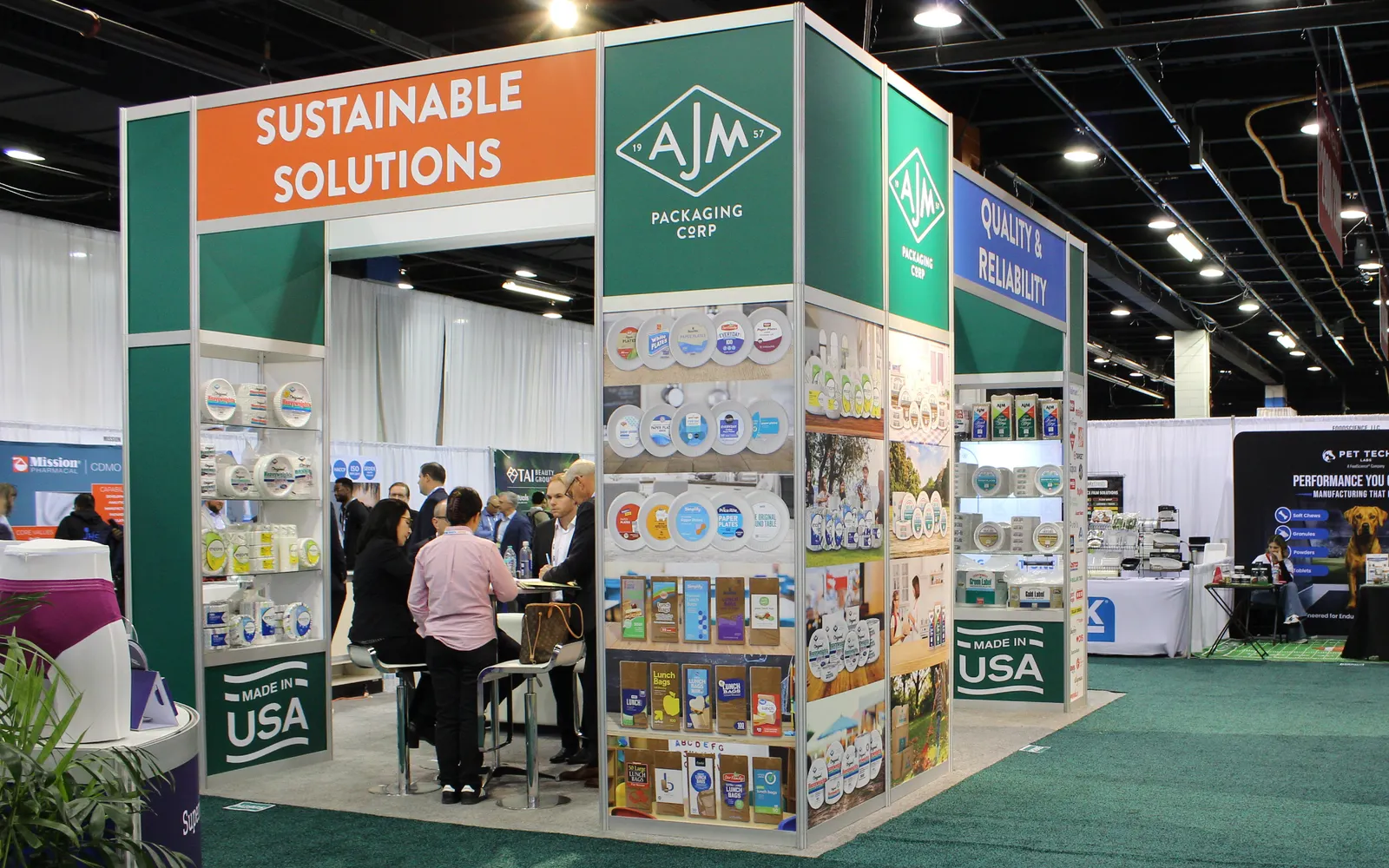
Highlighting innovation and partnerships
Numerous packaging manufacturers are trying to harness the growth in private label by forging partnerships with product makers and co-packaging businesses. They showed off solutions and newer innovations at the trade show, especially packaging products suitable for food, beverage and food service markets.
Accredo Packaging spotlighted its flexible packaging and printing capabilities to serve private label manufacturers, and specifically co-packers. Numerous trade show speakers and exhibitors talked about the importance of co-packing to private label, such as to provide quality consumer products at reasonable price points.
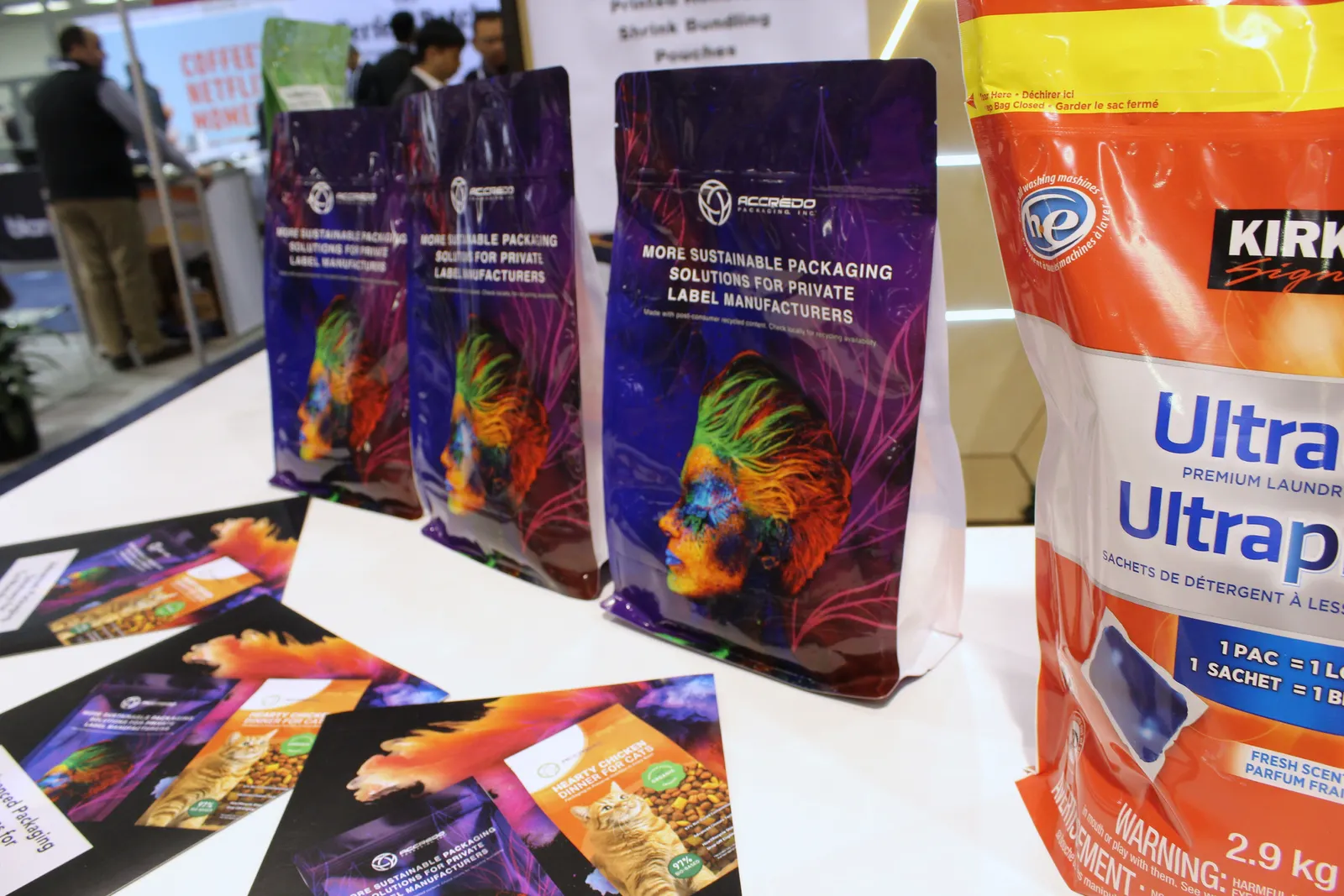
British Columbia-based WJ Packaging Solutions displayed flexible packaging innovations such as pet food bags with clear windows that allow the consumer to view the product inside, as well as monomaterial recycle-ready pouches. A representative noted that packaging innovation often occurs first for higher-end products, because the margins are more favorable, and then it moves toward more budget-friendly products.
Representatives for Ohio-based AeroFlexx demonstrated the company’s flexible, capless squeeze packs, including two introduced this year: for Boogie’s vapor bath and Furminator’s pet shampoo.
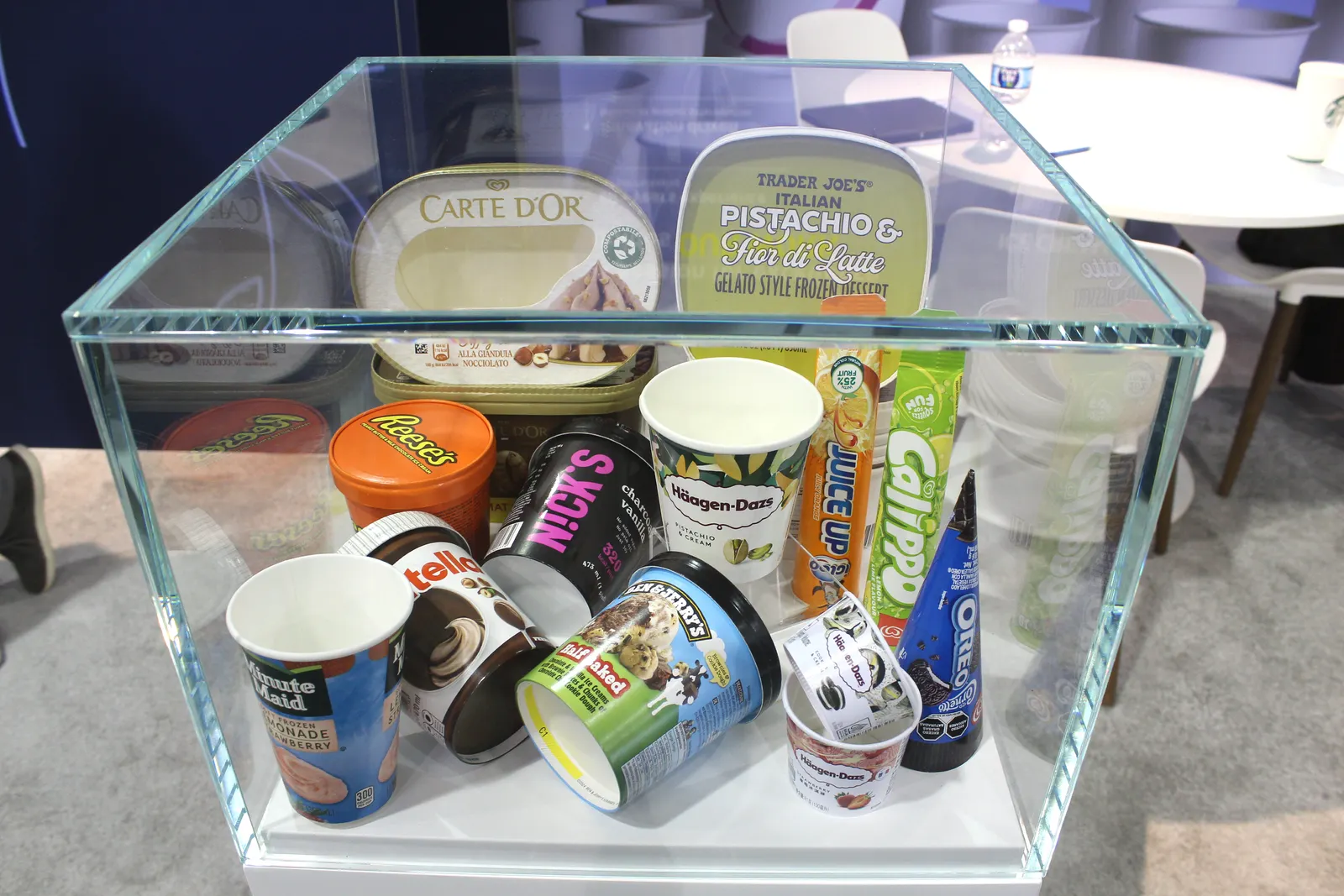
Representatives at Seda’s booth detailed the Italian packaging company's desire to achieve more business in the United States, particularly in the ice cream market with fiber-based tubs that have PLA coatings. The company also showed off its double-walled fiber cold cup and compostable fiber lid developed for Starbucks.
PakTech’s booth highlighted various plastic lids and multipack carriers that contain postconsumer recycled content, including the newly released PakLock child-resistant cap for use on cans containing beverages infused with cannabis. Employees explained that state regulations could soon require such safety locks on individual servings of infused beverages, and the company is ready to scale up PakLock production to meet the demand — whether for branded or private label drinks.
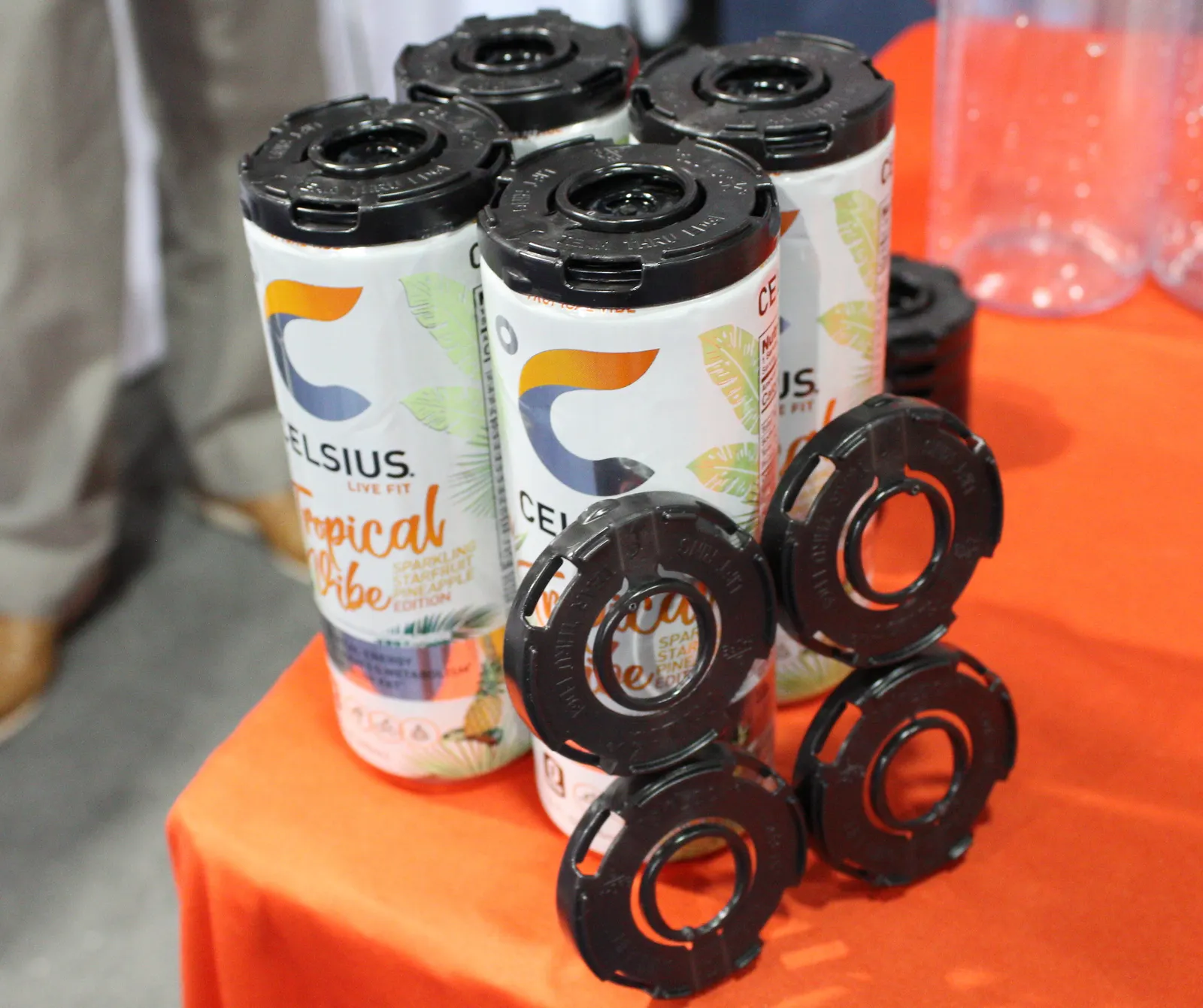
Huhtamaki’s booth displayed a variety of the Finland-based company's fiber packaging products, such as food service ware, as did Michigan-based AJM Packaging. Pennsylvania-based PaperWorks featured 100% recycled fiber food service containers made with UltraShield, its water-based barrier coating that is oil and grease resistant, and representatives explained the potential for the innovation’s use in branded and private label applications.
“Consumers are telling us loud and clear: They want quality, they want innovation and they want value,” said Kristal Sevcik, PLMA board chair. “Private label isn't just competing; we're leading.”




